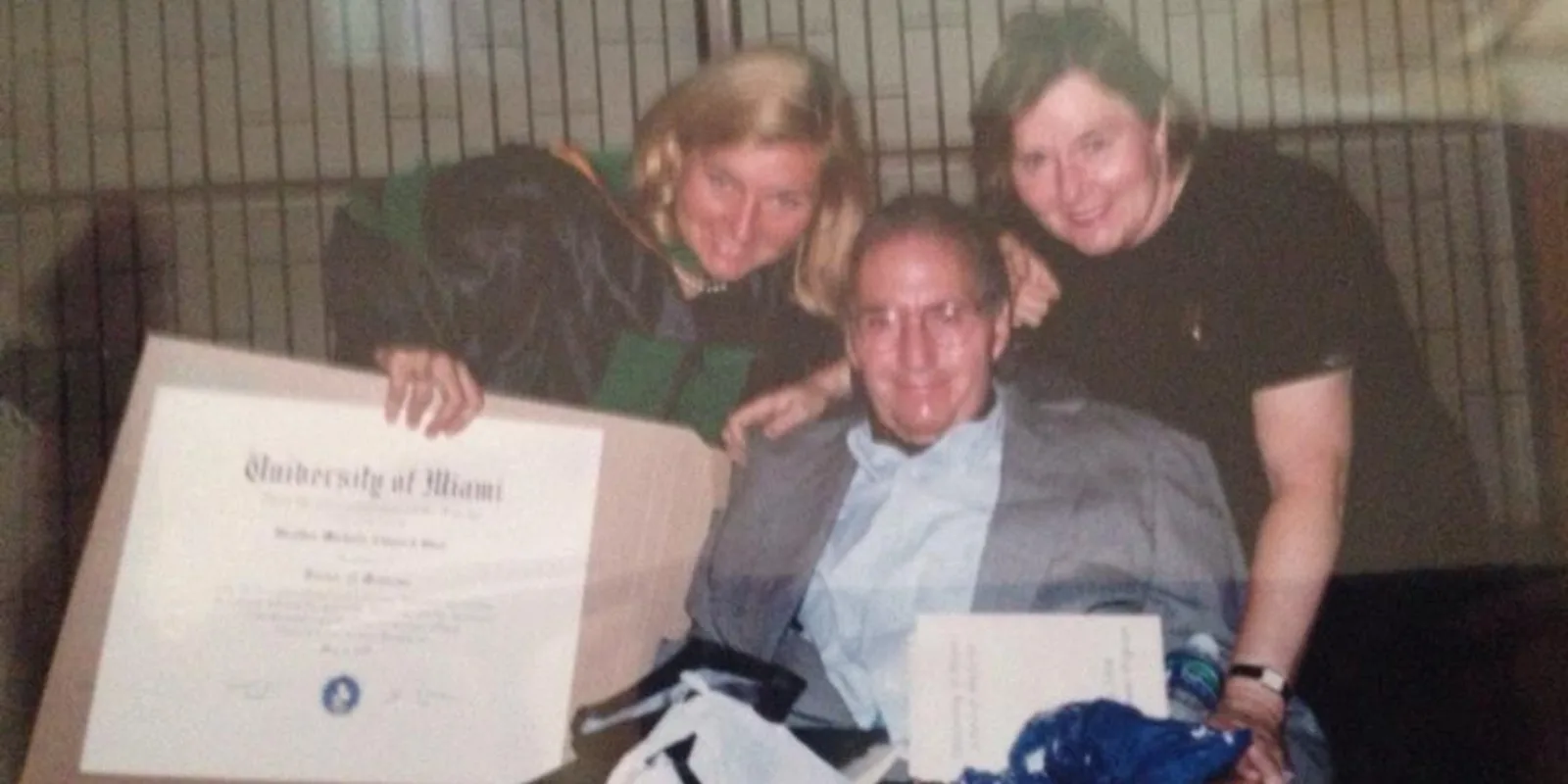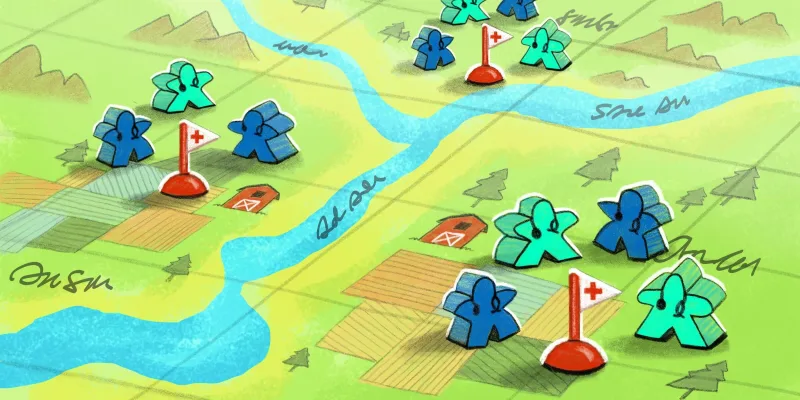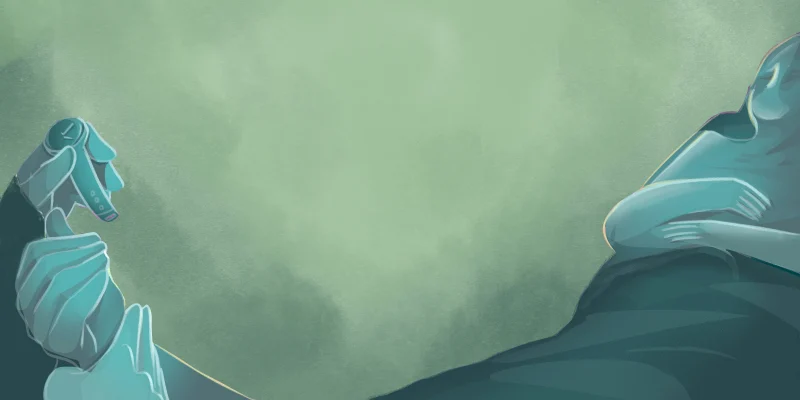
We have always been intensely private about my Dad. He was intensely private. He was diagnosed with ALS in his mid 40’s. At that time, he was the ever-capable, athletic, joyful family man — the bedrock of our extended family. He was an educated man with a BA from Indiana University and a law degree from University of Michigan. Money, title, climbing the corporate ladder — were not the measures of personal success to him.
He structured his entire career around his ability to be present with his family — to be there for all the important life events. He had a “mom and pop” general law practice where he practiced law side-by-side with my mother for years. He never missed a kid’s tennis match, a cross country meet, or a baseball game at 2 in the afternoon. He was athletic and loved good-spirited athletic competition with his children. He would giggle uncontrollably when he would sneakily take a short cut and beat one of us running the 5k loop around our neighborhood. I remember him standing in front of our house at the end of the street as I rounded the corner sprinting for the straight away — seeing him there grinning from ear-to-ear tapping his watch. He had a silly, childish, fun, sometimes playfully-devilish sense of humor. But he was principled, strong, interested in his family. He sat next to us at the breakfast room table helping us with math homework, discussing current events, helping us navigate the twists and turns of life.
This diagnosis came out of the blue. He noticed that he felt a little weak and slow to get to the ball on the tennis court. I asked, thinking I was the smart medical student at the time, “You don’t have fasciculation (muscle twitching), do you?” When he answered yes, the work up began. Denial, denial for all of us. But within four months, it was clear to all as he quickly progressed. He was barely able to walk. We had to accept the unreal.

He chose to fight. He did not want to miss out. He wanted to be there with his family. In the end, he had been a quadriplegic for 10 years. He was on a ventilator. He was fed through a tube. That all would have been tolerable, acceptable — if only he could talk. The inability to communicate is the most tragic part. He could not smile or gesture with his face. He could not voluntarily blink. He could not wave a hand or move a finger. He could not express himself in anyway to those who loved him. He was present — but only as an observer. He suffered terribly . My mother suffered right along with him.
He was visibly moved by pride and emotion at my medical school graduation ceremony. He sat in stillness and in silence watching intently as I marched across the stage with my classmates to receive my diploma. I looked down to see him as the dean shook my hand. He was looking back at me with tears dampening his cheeks, and the corners of his mouth raised in an attempt to smile. Even tethered to a wheelchair and a portable ventilator, he was present for my big day — again. He was the only dad that I saw cry that day at the ceremony. It was the last time that I can remember that he was able to display even that much emotion — by crying, of all things — to the world around him.
It was a crisp, February spring morning when they transferred the call for me to the radiology viewing room. I was a radiology resident at the time — still nursing my first cup of coffee for the day. With mixed relief and soul crushing sadness, I learned that he was gone.
It is the cruelest of diseases. I hope that someday, there is more understanding of the cause, treatment, a cure. I hope this educational campaign helps during the May ALS awareness month and that the money that is raised advances these hopes.







